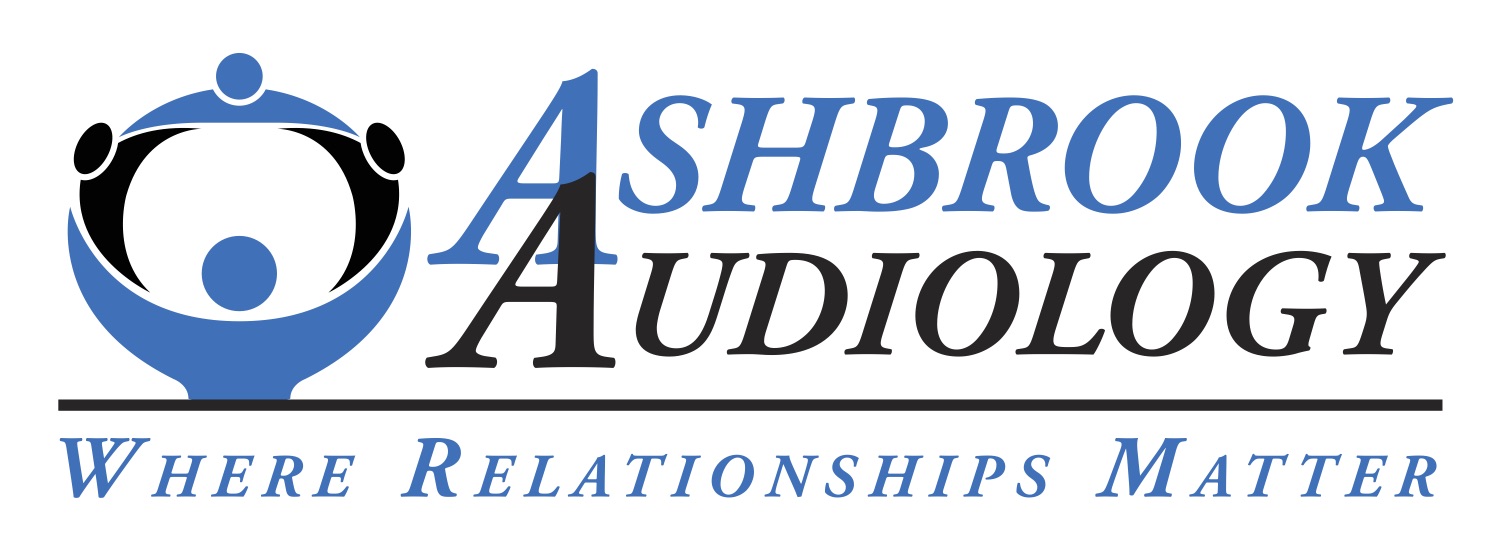How to Stay Positive After a Hearing Loss Diagnosis
Learning that you have hearing loss can bring many emotions, from

By: admin | March 26, 2024
Hearing care can be confusing waters to treat if you haven’t visited a professional before, especially when trying to understand the ethical standards that your audiologist follows. You may ask: What rules guide them? How do these rules apply to their practice? And most importantly, what does this mean for you?
No need to worry, there are guidelines in place to ensure that your audiologist provides you with the best care. These ethical considerations are key in fostering trust and open communication between you and your practitioner, ensuring that your unique needs and concerns are addressed effectively. This article will highlight these ethics of hearing care, what they entail and why they matter for those seeking help with hearing loss.
Firstly, it’s important to grasp the role of ethics in hearing care. These guidelines form the foundation of your specialist’s practice, ensuring they provide you with the best possible care.
Specifically, there are several key ethical principles that all hearing health professionals adhere to. They include:
Establishing trust and maintaining open communication with your audiologist is vital in managing your hearing health. These two elements serve as the pillars that support your relationship with your specialist, fostering an environment conducive to effective treatment.
Trust in this context is more than just believing what your specialist says; it also involves feeling confident that they have your best interests at heart. Likewise, communication is not merely about exchanging information; it’s also about expressing your concerns and understanding the details of your care plan.
When you trust and communicate effectively with your specialist, you’re more likely to feel comfortable discussing sensitive topics related to your hearing loss. This openness allows them to better understand and meet your unique needs, leading to a more personalized approach to managing your hearing health. Remember, you are not alone on this journey together with a trusted professional, positive outcomes are within reach.
The world of hearing care can often seem complex, especially when it comes to understanding the ethical guidelines that your audiologist follows. It’s normal to wonder: What rules do they adhere to? How do these rules impact their practice? And most importantly, how do these guidelines affect you?
There’s good news though, there are clear standards in place designed to ensure your specialist provides you with the highest quality care. These ethical considerations play a vital role in building trust and fostering open communication between you and your practitioner, ensuring your unique needs and concerns are addressed effectively.
Let’s further explore some of these ethical guidelines:
From the perspective of your specialist, ethics isn’t just a concept; it’s a daily practice. They diligently uphold these standards in every aspect of their work to ensure your best possible care.
One way they do this is by continually seeking education and training. This commitment to lifelong learning helps them stay updated with the latest research, technologies and best practices in hearing care. They understand that knowledge is power not just for them, but for you too. By staying informed, they can better educate you about your hearing health and empower you to make informed decisions about your care.
Another essential aspect is transparency. Your specialist will always be open and honest with you about all aspects of your treatment from potential risks and benefits to costs involved. This openness builds trust, enabling a productive partnership between you and your specialist.
While we’re on the topic of ethics in healthcare, it’s worth noting that these principles extend beyond individual practitioners to include the entire field of hearing health care. Professional organizations such as the American Academy of Audiology also have ethical guidelines that members must follow. These collective standards reinforce the commitment to providing high-quality, patient-centered care across the board.
Transitioning from the ethical guidelines and principles that guide your specialist, let’s focus on two critical aspects: your rights and confidentiality. One of these key rights is confidentiality your personal information should always be kept private. Your audiologist is obligated to protect this information unless it’s necessary for your treatment or if you give explicit permission for it to be disclosed. This confidentiality is not just about respecting your privacy; it also plays a significant role in building trust between you and your practitioner. By understanding these implications, you can feel more secure and empowered in managing your hearing health.
Next, let’s discuss the importance of informed consent in hearing care. Informed consent is more than just a signature on a document; it’s a vital element of ethical hearing care.
It ensures that you, as a patient, are fully aware of your treatment options and the potential risks associated with them. This understanding allows you to make decisions about your care confidently and knowingly.
In essence, informed consent serves as an assurance that your rights as a patient are respected and upheld. It emphasizes transparency between you and your audiologist, further strengthening the bond of trust in this important relationship.
Moving forward, let’s discuss the ethics involved in recommending hearing devices. Understanding these ethical considerations can provide a sense of security, knowing that your audiologist is committed to recommending devices that best suit your needs and lifestyle. This also ensures that the suggested solutions are not driven by sales targets or manufacturer incentives but are genuinely aimed at improving your quality of life.
However, as with any healthcare decision, there are pros and cons to consider. On the positive side, understanding the ethics behind device recommendations can enhance trust in your practitioner and ensure you receive personalized care. It also empowers you to make informed decisions about your hearing health. On the downside, it might seem overwhelming at first to fully grasp these ethical considerations. Additionally, while most practitioners uphold high ethical standards, there may be exceptions hence it’s essential to choose a reputable professional for your hearing care needs.
In the realm of hearing care, potential conflicts of interest can pose a problem. This typically arises when a practitioner’s professional judgment could be influenced by secondary interests such as financial gain. It’s an issue that can create uncertainty, leaving you unsure about whether recommended treatments are truly in your best interest.
Recognizing this potential problem is the first step towards addressing it effectively. Being aware that conflicts of interest can occur helps you stay vigilant and informed as a patient.
The good news is, there are safeguards in place to manage these situations and protect your interests. Most hearing health professionals adhere to strict ethical guidelines which prioritize patient welfare above all else. In addition, transparency plays a vital role here professionals should clearly disclose any affiliations or potential conflicts to their patients. This ensures you have all necessary information to make well-informed decisions about your hearing care.
Are you getting the fair treatment and accessibility you deserve when it comes to your hearing health care? This is an important question that deserves careful consideration.
Ensuring fair treatment and accessibility in hearing care is a top priority for your specialist. It’s their commitment to treat every patient with respect, equality and fairness. This principle also extends to providing accessible services that cater to all individuals, regardless of their unique needs or circumstances.
In addition, your specialist understands the importance of making their services easily accessible. They strive to provide clear information, straightforward procedures and convenient appointment options. By prioritizing fair treatment and accessibility, they aim to create a positive experience for you throughout your journey towards better hearing health.
Continuity of care is all about ensuring consistent and coordinated services throughout your treatment journey. This principle is central to the ethical guidelines that guide your audiologist’s practice. Continuity of care goes beyond merely providing ongoing treatment; it also involves maintaining open communication, monitoring progress and adjusting treatment plans as necessary. It’s about being there for you every step of the way, from initial diagnosis to follow-up appointments and beyond. Your specialist is committed to this principle, aiming to provide seamless care that caters to your evolving needs over time.
So what does this mean for you? It means you can rest assured knowing that your audiologist is dedicated not just to improving your hearing health in the short term but also maintaining it in the long run. They are there with you at every stage of your treatment journey, providing consistent support and guidance. Managing hearing loss is a continuous process, not a one-time fix. So lean on the unwavering commitment of your practitioner as they work towards helping you achieve better hearing health. Reach out to them with any concerns or questions they’re there for you!
Let’s talk about what you should expect from your audiologist. Knowledge is power, and your practitioner understands this well. They are committed to providing you with all the information you need to make informed decisions about your hearing care. This includes explaining treatment options, potential risks and benefits in simple terms that you can understand.
However, getting this information can sometimes be a challenge. It’s not uncommon for patients to feel overwhelmed by medical jargon or complex explanations. That’s where a good practitioner steps in they will break down complex concepts into simpler terms and answer any questions you may have. You have every right to understand your own care plan fully. So don’t hesitate to ask for clarifications or further explanations whenever needed.
Understanding the world of hearing care can seem daunting, but with knowledge about the ethical standards that guide your practitioner’s actions, you can confidently move forward. Understanding these ethics fosters trust and open communication between you and your audiologist, ensuring your unique needs are addressed effectively.
We hope this article has provided valuable insights into what to expect from your practitioner in terms of ethical conduct. Remember that a reputable specialist is committed to upholding these standards in every aspect of their work. Their primary goal is to provide you with the highest level of care, always keeping your best interests at heart.
If you have further questions or need assistance with managing your hearing health, Ashbrook Audiology and Hearing Aid Centers are here for you. We invite you to contact us at our Danville or Martinsville, VA locations by calling (276) 666-0401 for more information on how we can assist you on this journey towards better hearing health.

Learning that you have hearing loss can bring many emotions, from
By: admin | November 18, 2025

When someone you care about begins to experience hearing loss, it is not
By: admin | September 24, 2025

Travel opens up new experiences and adventures, but it can also bring
By: admin | April 24, 2025
